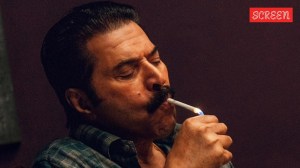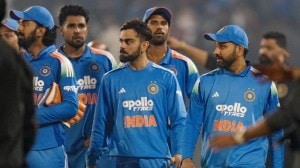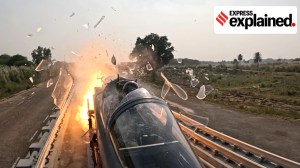‘Everyone has a dark side. I want to get to the bottom of the human psyche’: Vishal Bhardwaj
Vishal Bhardwaj on his just-released film Khufiya, casting Tabu, adapting Shakespeare and his love for comedy.
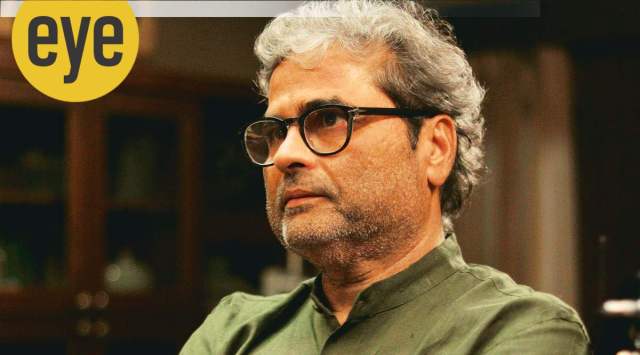 Vishal Bhardwaj talks about his latest works and future plans.
Vishal Bhardwaj talks about his latest works and future plans. WITH his latest film Khufiya, filmmaker Vishal Bhardwaj has ventured into the world of espionage, weaving a drama involving double-crossing agents, hard-nosed intelligence officers on a mission and a desperate mother. The film is based on Escape to Nowhere (2012), a novel by Amar Bhushan, who worked with Research and Analysis Wing for over two decades. The novel is said to be “inspired by a real incident” that took place in 2004 when a senior intelligence officer, suspected of being a spy, vanished.
With Khufiya, now streaming on Netflix, Bhardwaj has reunited with actor Tabu after Maqbool (2003) and Haider (2014). The ensemble cast includes Ali Fazal, Wamiqa Gabbi, Ashish Vidyarthi and Bangladeshi actor Azmeri Haque Badhon.
While Khufiya marks the music composer-writer-director’s return to feature films five years after Pataakha (2008), he recently made his web-series debut with Charlie Chopra and the Mystery of Solang Valley (SonyLIV), an official adaptation of Agatha Christie’s The Sittaford Mystery (1931). In a free-wheeling conversation, Bhardwaj talks about his latest works and future plans. Excerpts:
After five years, you are back with a new film, Khufiya, an adaptation of Amar Bhushan’s novel Escape to Nowhere. When did you start working on it?
It isn’t by design that I took five years. When Pataakha released in 2018, I was working on an adaptation of Salman Rushdie’s Midnight’s Children (1981). We worked intensely for over a year on that. Before we could start shooting, the plug was pulled. Then, I was making a series on IC 814 (the hijacking of Indian Airlines Flight 814 in December 1999) for Amazon Prime Video. After the Tandav controversy, they developed cold feet.
Though I started working on Khufiya in 2016, the first draft was ready in 2018. At that time, it had a male protagonist. I wanted to work with Irrfan (Khan), who was unwell. After he passed away, I thought of changing the gender and making the film with Tabu as the protagonist. The budget I required for this wasn’t available for any female star. But Netflix gave me the confidence to make the movie that I wanted to make.
Even though Tabu is widely acknowledged as a powerhouse performer, it was still difficult to raise money?
It’s the reality of the market. If I want a budget like a Rohit Shetty movie, then I must deliver a hit like him. This is something we artistes should accept. We all have our limitations, even Rohit Shetty. He can’t make a film like Christopher Nolan.
What changed in the script once Tabu came on board? Also, what’s your process while working with Tabu?
The personal track of Tabu developed after I changed the gender since that became the script’s requirement. Her character is in the closet and that track came out beautifully. Now, khufiya (secret) had two meanings — one in her personal life and another in her professional life. As for our process, Tabu and I don’t work so hard. We share a deep understanding. She knows what kind of preparation I’m looking for. That’s visible in the movie too.
Were the characters played by Azmeri Haque Badhon and Wamiqa Gabbi there in the initial draft too?
They were. The male protagonist was infatuated with the character of Gabbi, who is married to the mole, and has her own secret life when she is alone. One part of the film is set in Dhaka. Bangladesh was one of the primary areas of Amar Bhushan’s operation. With Tabu coming in, it opened up so many possibilities for me. Azmeri’s character, who is called Octopus in the film, was created after that. Generally, spy stories are treated as slick thrillers with a jingoistic tone in Hindi cinema. We make films about assassins. There is a difference between an intelligence officer and hired assassins. In our movies, we call them RAW officers, but they refer to themselves as R and AW (Research and Analysis Wing) officers. One thing I came to know when I read the book was that intelligence officers are not trained in using weapons or supposed to carry any. If they have to do any operations, they hire the mafia of that country and they often do not know who they are killing for.
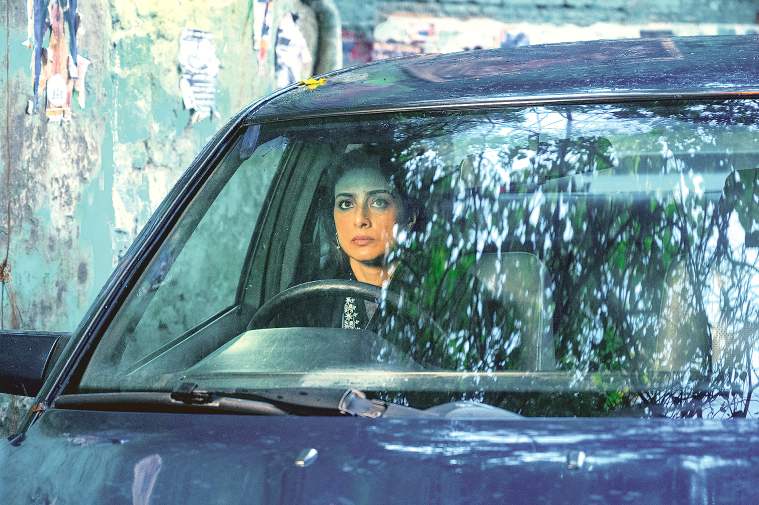 A still from Khufiya.
A still from Khufiya.
I was finding it difficult to raise money because Khufiya was not falling under the genres that the industry here is familiar with. Many people who read the script told me that nothing much happens in the story. It is just surveillance going on. If you have watched Alfred Hitchcock’s Notorious (1946), The Man Who Knew Too Much (1956) or North by Northwest (1959) — these are great movies of this genre.
When Bhushan’s novel was published, some were of the opinion that this was his way of absolving himself of the blame he faced over the defection of an Indian intelligence officer to the US…
In the field of intelligence, it’s difficult to know the truth, including what goes on in a traitor’s mind. While I was doing my research, I came across the assumption that Amar Bhushan had written the book to absolve himself. I am tilted towards him because there was an internal inquiry set up and he was called for it. But they didn’t take any action against him. That means he supported the right things.
Your movies continue to explore the complexities of the human mind.
You have to go beyond the surface. I don’t take life seriously. Everyone has a dark side. Everyone has childhood trauma or secrets that they do not share with others. When you scratch that, you get a lot of material. I want to get to the bottom of the human psyche. Look at Shakespeare’s work, he has observed the human psyche so closely. Macbeth is about guilt and denial of guilt. When the audience connects with their psyche (of Macbeth and Lady Macbeth) who have killed Duncan because of their greed, you feel for them.
Of all the Shakespearean dramas that you have adapted, which was the most difficult to adapt?
Each one of them had their own set of difficulties. During the making of Maqbool (2003), I faced difficulties raising finances. Writing the third act was quite challenging, especially finding the parallel to the witches’ prediction to Macbeth that, “You will only be conquered when the Great Birnam Forest walks to Dunsinane Hill”.
Watch | Vishal Bhardwaj Opens Up On Tabu, Irrfan Khan and His Upcoming Film Khufiya
In choosing to adapt Shakespeare at the beginning of your career you showed great confidence.
It was ignorance. I didn’t know Maqbool would be watched so seriously and minutely. I assumed that I was doing an underworld film. Some asked me to remove Shakespeare’s name from the script since people may assume that an adaptation of a literary work might not be entertaining. I did not think anyone was going to take me seriously. Also, I didn’t carry the burden of adapting Shakespeare’s work. That’s why I could write such a script. While working on other adaptations (Omkara in 2006 and Haider in 2014), I followed a similar approach.
The making of which one of these tragedies was most challenging?
Haider. It was very difficult to make that film. Now, it is impossible to make it even in my dreams.
It is also your most political film.
Yes. Things were different back then. Even when a film made the strongest political comment, people were open to it. I didn’t fear backlash because I thought I was telling the story of the region (Kashmir). In many ways, filmmakers are like journalists. You have to say what you are experiencing. It is so insensitive of us filmmakers that in the mainstream we had not tried to make a truthful movie about what was happening in Kashmir. We saw Kashmir through the eyes of an army man or journalist. We never saw it inside out.
One thing I accept is that there was not enough representation of Kashmiri Pandits in Haider. That was not a conscious thing. The exodus of Pandits was a big tragedy. But I never imagined that my film would be analysed from that lens. Otherwise, it would have been easy for me to have a Pandit character.
Can you give us a peek into your creative process?
Everything comes at a different stage of filmmaking. I became a director because I wanted to survive as a music composer. That’s the best way to hire myself, I figured. When I am thinking of the subject for my next, it’s the filmmaker in me who is working. When I start writing, the song situations come up organically. During the making of background music, I have a different point of view as a music composer.
What does your reading list look like?
I don’t read much. But when I come across a title that I think will affect my filmmaking, then I am relentless. We have read Agatha Christie’s books since childhood. I like Ayn Rand’s The Fountainhead (1943) and Atlas Shrugged (1957). I love PG Wodehouse and his humour. I also love reading Roald Dahl, especially his short stories. Sahitya Kala Akademi publishes a bi-monthly magazine called Indian Literature, which publishes writings of contemporary Indian writers. I read this magazine. That’s where I came across the story Do Behene (by Charan Singh Pathik), which was made into Pataakha.
You love PG Wodehouse’s humour. So, will you be taking a shot at comedy?
Everyone thinks I am a serious person, but I am not. That’s how I find comedy in the darkest of themes. I want to do a trilogy of Shakespeare’s comedy but I am confused about which one to do first. I have in mind A Midsummer Night’s Dream, Much Ado About Nothing, Twelfth Night and The Two Gentlemen of Verona, which is like a typical Hindi entertainer. I also want to adapt some PG Wodehouse stories.
Your female characters — Nimmi, Indu Tyagi, KM — are not perfect. How do you approach these characters?
When you want someone to shut up, you put that person on a pedestal. That’s why we make mothers (so virtuous) who have no right to have grey shades or be imperfect. We have categorised our women as wives and sisters. Maybe this is my rebellion against the oppression of women.
Which is your most underrated movie?
Matru Ki Bijlee Ka Mandola (2013). The audience refused to see beyond Imran Khan’s casting in the film. He is not Dilip Kumar but he is okay in the film. There were so many things in the film that were funny.
Which one of Tabu’s characters was difficult to write and which is your favourite?
My favourite is Ghazala in Haider. Most difficult to write was Nimmi and most difficult to perform was KM in Khufiya. This demanded an internal performance by Tabu. She can’t express herself because of her profession, yet she has to grab the attention of viewers. Both Nimmi and Ghazala were author-backed roles. KM is an internalised, quiet and subtle character.
Since Irrfan could not be part of this project, Tabu stepped in. Who can take Tabu’s place?
No one can take Tabu’s place. Or Irrfan’s.
- 01
- 02
- 03
- 04
- 05











